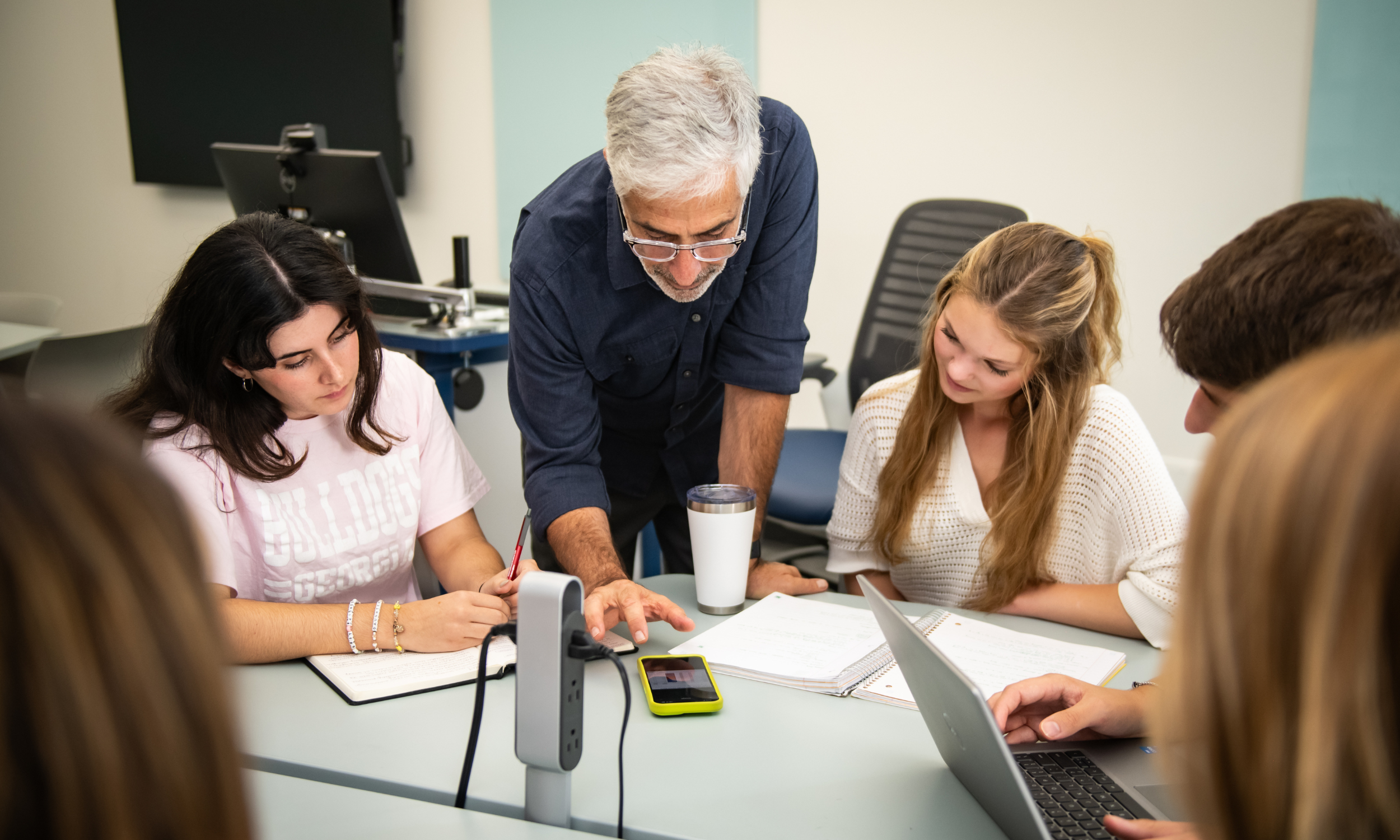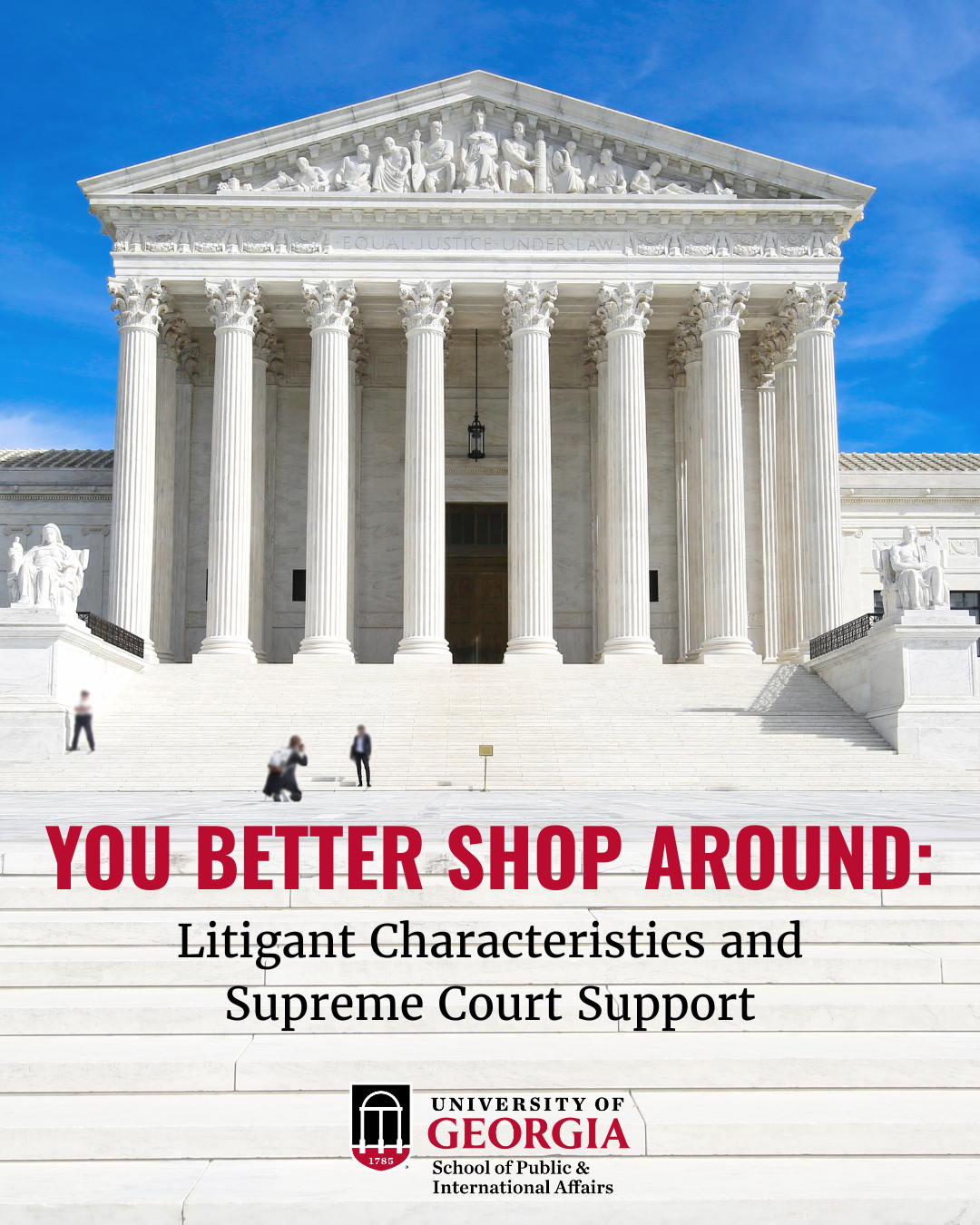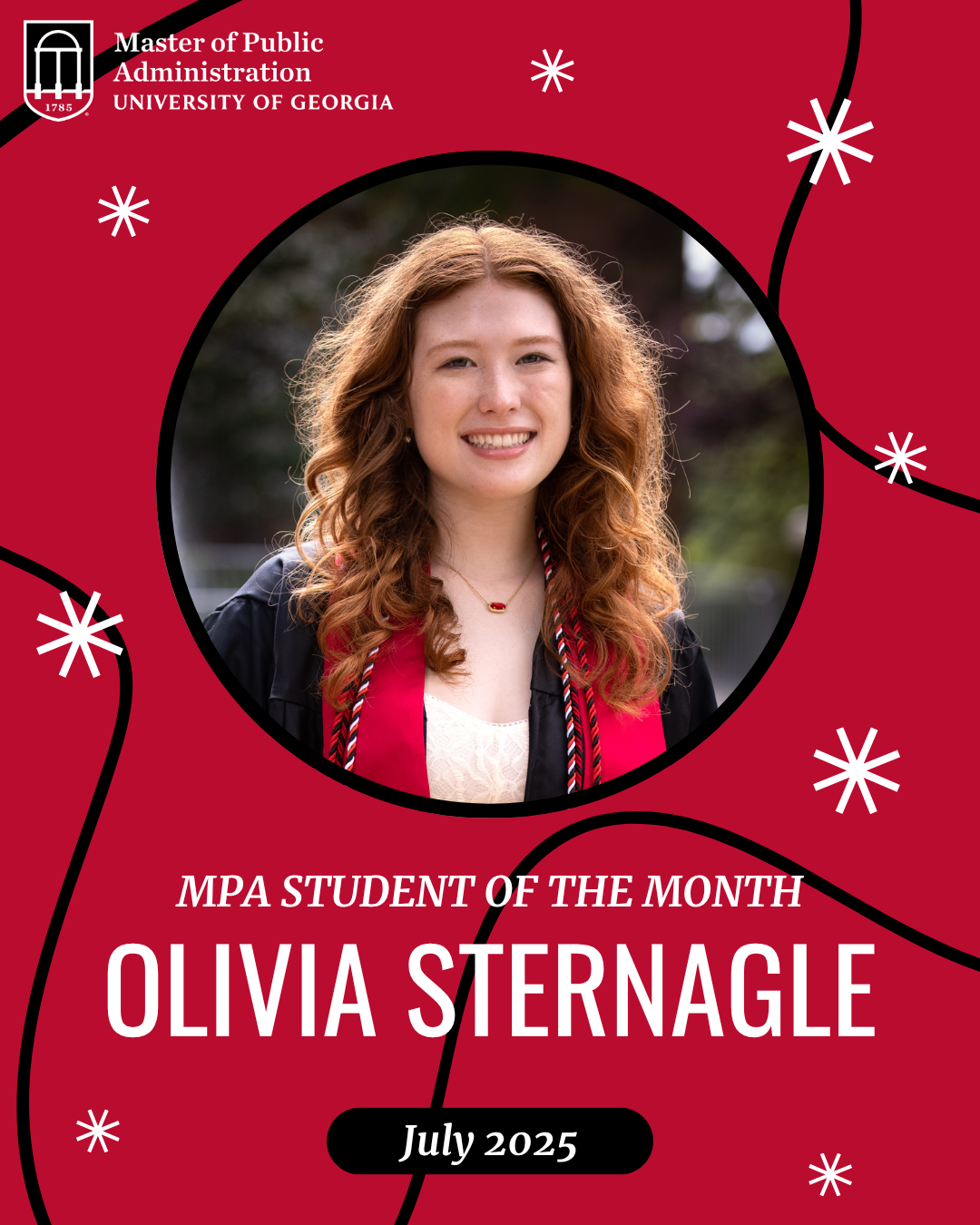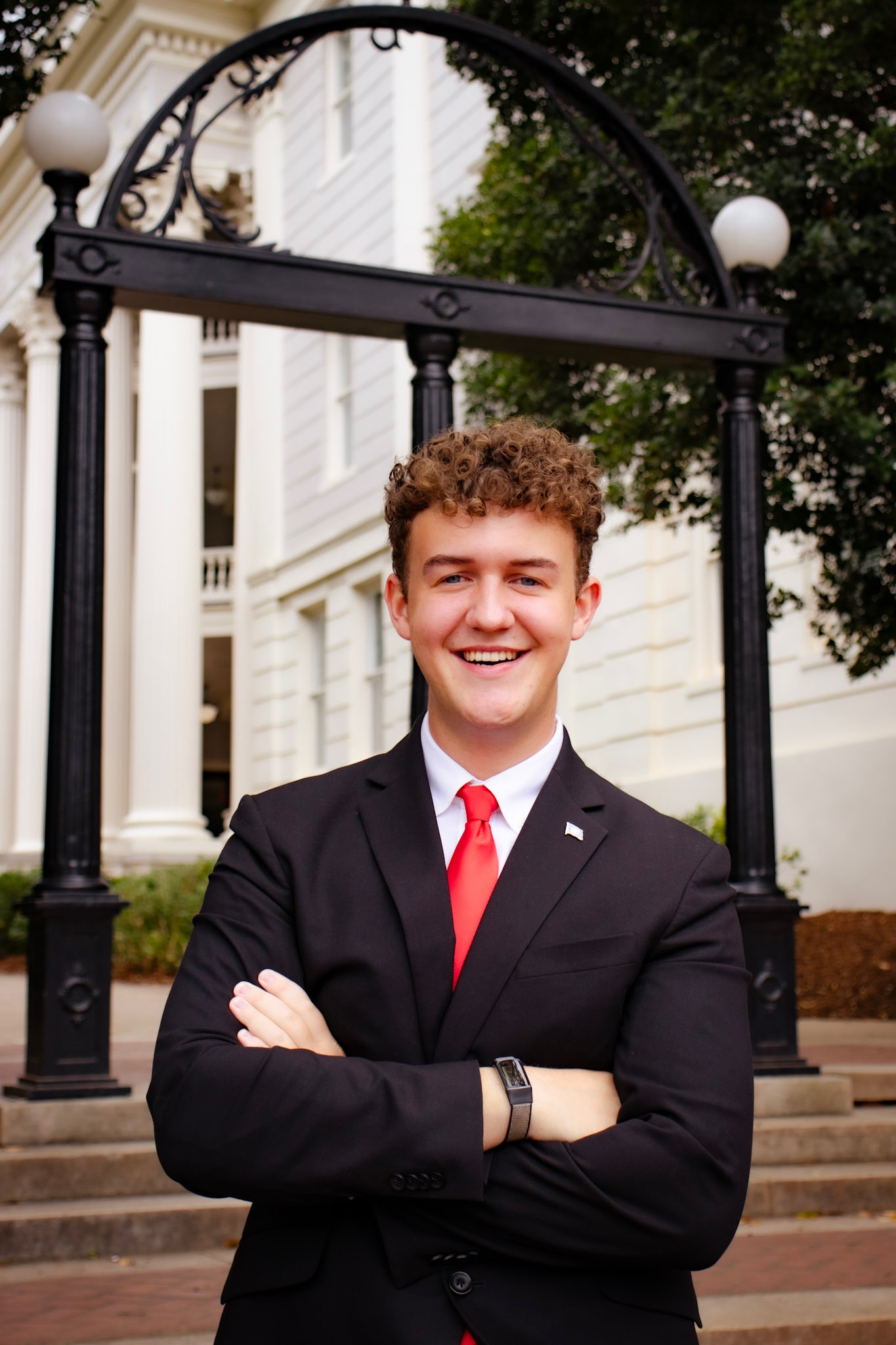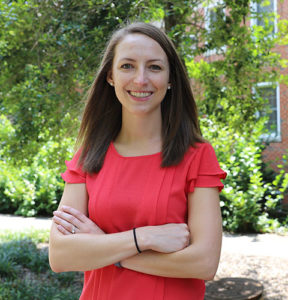
Emily Lawler received her PhD in Economics from Vanderbilt University. Her research focuses include health economics, development economics, and applied microeconomics. Lawler is particularly interested in analyzing the effects of public policies on maternal and child health. Her dissertation work focuses on the effects of vaccination policies on health and health behaviors. Lawler is teaching Foundations of Policy Analysis this fall.
What attracted you to UGA?
EL: UGA has a fantastic community of scholars that I’m so excited to be a part of! In addition to all of the interesting and important research that is being done, everyone I’ve met has been very supportive and friendly.
Where did you grow up?
EL: I grew up outside of Lexington, Kentucky, way out in the country. My parents still live there and I love going back to visit.
What are you working on that you’re most excited about?
EL: I have a couple of new projects on flu and HPV vaccination policy that I’m pretty excited about. They focus on analyzing not only the direct effects of the policies on vaccination rates, but also go farther and look at spillover effects of the policies to other outcomes, such as school absences and uptake of other preventive care, and to other non-targeted groups. These analyses show that the benefits of these vaccination policies go far beyond just increasing vaccination rates, which I think is very important and useful for policy makers.
What was your favorite part of your college experience?
EL: Probably the friendships that I developed. In terms of a specific experience, though, I would have to say my semester abroad in New Zealand. New Zealand is a gorgeous place and it really made me fall in love with traveling.
Please tell us about your research interests.
EL: I’m very interested in the determinants of infant and child health, and how that affects later life economic outcomes. In particular, I think it’s important to study how public policies interact with and shape these types of outcomes.
How do you like to spend your time when you’re not working?
EL: Mostly I like to spend time outdoors – hiking and exploring new places. I also really enjoy reading and crafting, and lately have gotten into crossword puzzles (although I’m terrible at them!).
Please tell us one fun fact about you.
EL: During my semester abroad in New Zealand I bungee-jumped off the third highest bungee in the world. If I ever make it back there I would love to do it again.
What is one goal you have for yourself for the next year?
EL: Professionally, I would like to get the last chapter of my dissertation published. A personal goal is to keep up with the training of my new puppy (my husband and I just got a standard poodle puppy named Blue).
Who inspires you in your research or career?
EL: I’m very inspired by a number of strong female economists, such as Janet Currie and Anna Aizer, who have broken a lot of boundaries in the profession and who consistently produce important and impactful research. Also economists such as Jon Gruber, who has been able to convert health economics research into very tangible policy that has helped improve the lives of a lot of people.
If you could have one superpower, what would it be?
EL: Teleport – I think it would be amazing to be able to be anywhere in the world at the drop of the hat. It would make travel and seeing family and friends so much easier!
What advice do you have for SPIA students?
EL: Work hard, but don’t forget to enjoy the experience. I’m a firm believer in work/life balance, and it’s something I consciously strive for in my own life.

